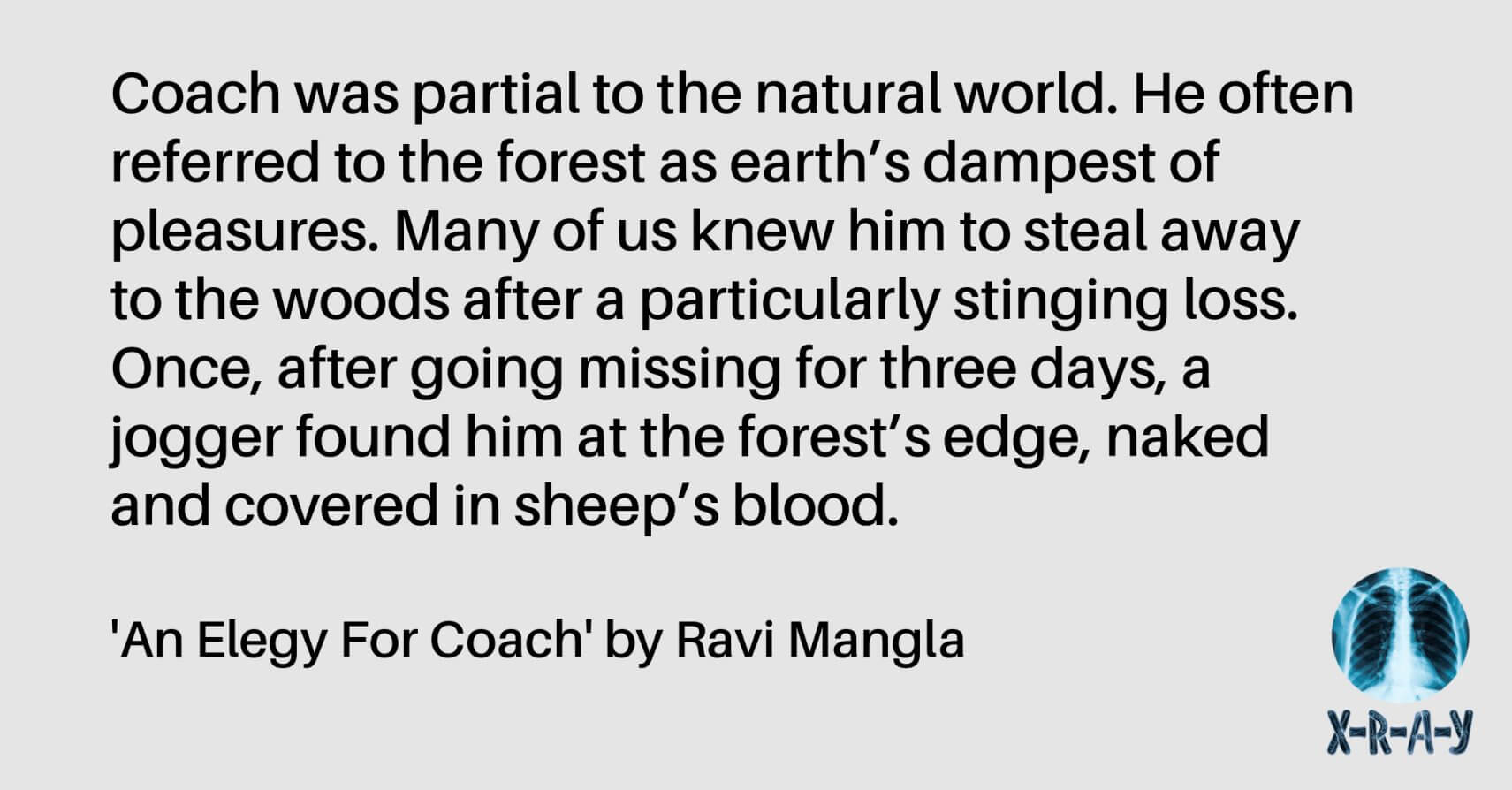We shook on it.
If we won the final game of the season, Coach would run fifty laps around the gym. Some time around the eighth lap he collapsed and died.
Some of us cried. Others stood in monastic silence. McClusky threw up in the Gatorade cooler. Coach’s death was relayed on the morning announcements after news that the cafeteria was out of waffle fries. This was not, we believed, the memorial Coach would have wanted. He loved waffle fries.
We felt an obligation then, a hefty responsibility, to give Coach the send-off he would have wanted. After all, Coach made us who we are. He taught us you could beat a breathalyzer by swallowing a roll full of quarters. That any bowel troubles could be remedied with an egg cream in the morning. And that laws proscribing gambling on youth sports were antiquated and in need of legislative reform.
Baumiller proposed planting a ficus tree. Coach was partial to the natural world. He often referred to the forest as earth’s dampest of pleasures. Many of us knew him to steal away to the woods after a particularly stinging loss. Once, after going missing for three days, a jogger found him at the forest’s edge, naked and covered in sheep’s blood.
There were rumors that Coach had children of his own. Connelly, who worked at the mall food court, once saw what looked like Coach with a child in tow berating a Smoothie King employee. But for all practical purposes, we were his children, and we wouldn’t let his memory perish in the crucible of time.
Coach wasn’t perfect, but he was our coach.
Chakravarti said we should set a dove loose in the gym rafters. But where does one even acquire a dove? Someone suggested wrangling a pigeon from the parking lot, but we felt that a pigeon lacked commensurate gravitas.
We were drinking our egg creams when Roskowick proposed burning an effigy. No objections were raised.
Shapiro nicked a set of Coach’s clothes from his office. Ramirez found a mesh bag of half-deflated volleyballs. We filled Coach’s trademark polo and khakis to a generous girth. In the cold light of dawn, we propped his body against the visitor’s goal post.
Markelson took out his clarinet and played a beautiful rendition of a Brahms sonata. Stuart-Byrd read a sestina by the English poet W. H. Auden.
We tried to hang his beloved orange whistle from his shoulders, finally losing patience and stuffing it in his shirt pocket.
Roskowick doused the effigy with rubbing alcohol from the team manager’s first aid kit, then set it alight.
We watched the flames consume his body, smoke filling the air. It spread to the rest of the field: a great orange blaze that turned seedling to ash.
Markelson quietly uncoupled his clarinet and packed it in its case.
The flames rose, swallowing the equipment shed and bleachers, lapping at the painted scoreboard with our school crest.
When we heard the sirens behind us, the voices calling our names, we didn’t turn our heads. We didn’t run or flee. We knew we’d done nothing wrong.

